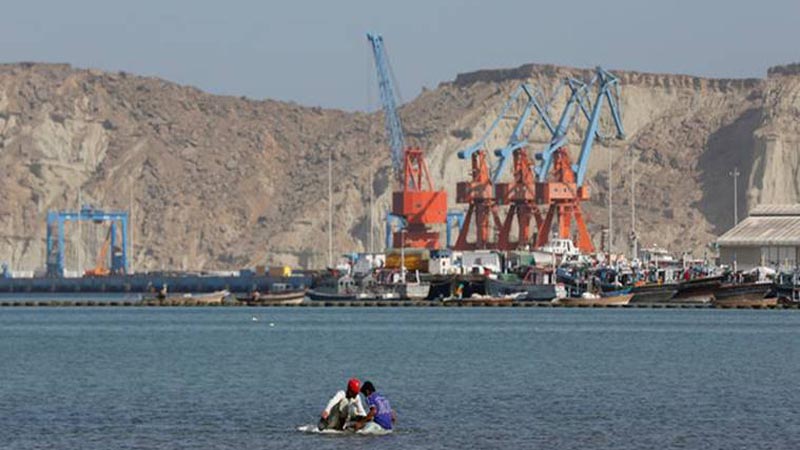 BEIJING: Despite its advantageous location on the shores of the Arabian Sea, the Gwadar has long remained underdeveloped in the past; however the launch of an economic free zone in Gwadar is bound to change the fate of the area, Chinese state media has reported.
BEIJING: Despite its advantageous location on the shores of the Arabian Sea, the Gwadar has long remained underdeveloped in the past; however the launch of an economic free zone in Gwadar is bound to change the fate of the area, Chinese state media has reported.
Recently, the economy of the prominent city in the China-Pakistan Economic Corridor (CPEC) plan seems to gear up, especially with the launching of the Gwadar free trade zone on Jan 29, reviving hopes for it to become a global trade hub.
Launching of the free trade zone was a historic moment. It is the beginning of a dream coming true, Ahsan Iqbal, Pakistani Minister for Interior and Minister for Planning, Development and Reforms, had said at the launching ceremony, the Chinese state media said. Less than a year ago, the Gwadar port complex was still a giant construction site. Now it has become a brand new modern harbor boasting giant brand new cranes, hotels, warehouses, factories and a business centre.
The unprecedented pace of development convinced locals of the future of Gwadar. “Gwadar will lead the take-off of Pakistan’s economy. It will be the next Dubai or Hong Kong,” local banker Masood Awan said.
Gwadar Expo, a two-day trade fair, coincided with the opening of the free trade zone. Muhammad Niazi, a seafood exporter, had planned to represent his company at the event, but failed to get a booth as more than 5,000 companies had vied for just 150 vacancies.
More than 25,000 people visited the trade fair, according to China Overseas Ports Holdings Co. (COPHC), which took over the operation of the port in 2013.
Pakistan International Airlines (PIA) had to increase the frequency of its flights from Karachi to Gwadar from one to two per day, while announcing that a new flight from Islamabad to Gwadar will be open by the end of the year.
Even without a booth, Niazi and his colleagues flew to Gwadar from Pakistan’s largest city of Karachi. He stayed after the trade fair closed on Jan 30, busy making new business contacts. “We are determined to expand our business to Gwadar. The speed of development is just amazing,” Niazi said.
BETTER CITY LIFE: More than 30 Chinese and Pakistani companies are investing some 500 million U.S. dollars in the free trade zone, said Hu Zongyao, deputy general manager of the Gwadar free trade zone, which is expected to bring thousands of jobs to the fishing city of less than 100,000 population.
Also, COPHC have worked with the local government and Chinese organizations to help improve living conditions in Gwadar, including the installation of desalination facilities to provide a million gallons of drinking water to local residents.
China’s Red Cross Society helped build a medical station, while China Foundation for Peace and Development help set up a primary school there.
“Better living conditions mean better investment environment and more talents. Helping the locals is also helping ourselves,” Hu said.
“Investment by experienced and competent Chinese companies is encouraging for the future of Gwadar. The port will one day become a top destination for business and tourism, a regional, even global trade center,” said Dostain Khan Jamaldini, chairman of Gwadar Port Authority.
The construction of the city is a long-haul endeavor. It takes time to build infrastructure, find investment and talents and cultivate economic vitality. Eventually the city will grow as evidenced by many global cosmopolitans that had been fishing villages.
Published in Daily Times, February 4th 2018.